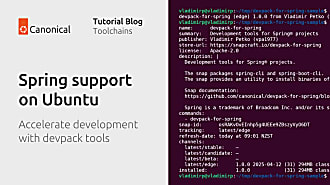Canonical
on 9 August 2010
Why would you give your music away for free?

Photo (cc) Matt McGee
You're an up and coming band. You're gonna get signed soon. You'll get played on the radio. You'll tour the world. You're gonna teach Nigel Godrich and Brian Eno a thing or two in the studio. You're gonna have so...so many groupies scrabbling for pieces of your hair while you dash through the crowd into pyrotechnic glory on the biggest stages on the planet.
Your music is worth millions.
So why would you give it away for free?
Why?
Well.
Back in the 20th century, when recording technology was new, it was expensive. It was expensive to make recordings and it was expensive to distribute them. This meant that the means of production were controlled by a select few.
This recording technology was powerful. Never before had it been possible to expose so many people to the artistic output of a few small groups of individuals. That euphoria you see when you look at Elvis or The Beatles - the screaming, fainting teenage girls worked up into a breathless furore, experiencing excitement beyond excitement --- that's not all down to the talent of the artists. Part of it is the technological context. It's the outcome of the opportunities that the technology made available.
Those who control the means of production are in a comfortably lucrative position. They can hedge their bets, take risks, develop talent and go with their gut. (They are also in a position to ruthlessly exploit the artists from whose talent they profit, but that's not what I want to talk about here). They can be pretty sure that they can get a good return on their investment.
But now... now things are different.
Nobody controls the means of production. Nobody controls the distribution of art. Millions of enthusiasts now have access to music production technology that fifty years ago could not have been dreamt of. We don't even have to pay for it any more. We can get open source music software, tinker with it, improve it, and make sounds nobody in the universe has ever heard before. And to share our work we don't need to badger a record label or high profile DJ for a decade, we just put it on Facebook, SoundCloud, Myspace, Jamendo - wherever, and anybody in the world can hear it.

Image (cc) eckelon
But what does this mean for the artist? What does this mean for your band?
Well. It means that the golden era is over (if there ever was one). It means that there's really not anybody around who wants to take the risk to develop untried talent - the margins are too fine.
And there's another problem.
Production is free. Distribution is free. But attention is more expensive than ever.
When your average social networking site is host to the work of millions upon millions of bands, then how will anybody ever hear your work? You could come up with the next YouTube viral I suppose (though such work is not typically notable for its artistic merit per se). You could hire a marketing firm (might be a bit pricey). You could pay for some internet ads (actually surprisingly effective, but still costs a fair bit).
Attention is about copies getting made of something. It's about having something experienced by many minds. It's about people talking about something they've heard when a conversation happens to swing that way. It can be viral or it can be expensive, and it's usually the latter.
So when an opportunity comes along for several million copies of a song you've made to be distributed throughout the world, for free, then you should pay attention.
I am talking about the Free Culture Showcase.
We have a rare opportunity here. How many other wealthy benefactors are there in the world who are willing to ship your work across the globe to millions of people for free? I'm not just talking about CDs here. Ubuntu gets factory installed on laptops, and those laptops go into homes, and when somebody first boots up the music player on their new computer, your song could be the first thing they hear. And they might just like it.
You just need one person in the world to give you that break. They might be a record producer with an ear for talent or they might be a technologist who needs some demo content for their free operating system.
So if you make music, get involved.
And don't just submit your B-sides, send your best song and get it heard.
http://soundcloud.com/groups/ubuntu-free-culture-showcase
Update: One more thing...
This isn't some 'unsigned band competition'. This is an opportunity for any band or producer to get some serious exposure, bedroom tinkerers and seasoned stadium rockers alike, whether you've got a few fans on myspace or a regular Rolling Stone cover story. Of course if you are signed, you'll have the added complication of getting your record label to agree to this. Point them here.
And please, if you're not a musician yourself, bring this blog post to the attention of anyone you might know (or even just met once) who you think has that gift.





